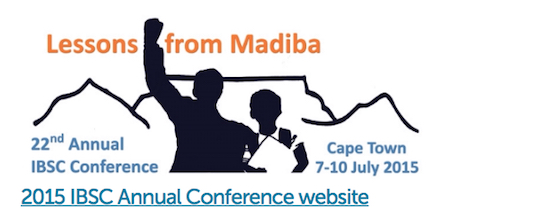
The new masculinity
We reproduce an article by Cristina Sen published in La Vanguardia on December 2, 2017.
The "new good man" knocks on the door.
Feminist movements have challenged gender roles: now they question their place in the world.
What is it to be a man today? What is expected of me? Am I a just man? Can I change? Should I change? How do I relate to other men? And with women? Am I a good father? Do I establish egalitarian relationships with women around me? Have I ever crossed the red line in my relationships? Am I sexist? Am I free?
The questions are posed by anthropologist Ritxar Bacete, author of Nuevos hombres buenos (ed. Peninsula), almost 400 pages of reflection that invites men to break with the foundations of an unequal society, patriarchal and sexist structure. Not only because it violates the rights of women but because for them, and although many do not know it, he says, it is also a place that restricts their freedom to be.
Bacete covers some of the essential aspects of a book in which he considers that the great crisis of the 21st century is "the trance of men" and the great dilemma of the future "masculinity as we know it". It is women, feminist movements, those that have undermined the foundations of the patriarchal system, those that have changed relations, those that have critically pointed out this "dominant hegemonic masculinity" on which society has been based and although they continue to be Too many traces, the old board is no longer useful.
The Basque anthropologist, one of the main references in gender and masculinities, is optimistic about the construction of this "new good man" that he himself tries to practice, although evidently he coexists with other toxic models. But what it tries to do is give arguments so that men are encouraged to reflect on whether it is really worth maintaining the "privileges" of this unequal society. And he believes that the opportunity that women have given them to rethink should be seized.
"Men," he says, "we have to ask liberating questions, know how we feel, connect with emotions, and with other men, free ourselves without it being necessary to flagellate ourselves." Leaving the social "dress" learned is not easy and involves, of course, a certain uneasiness. The restlessness also of losing privileges. The anguish that can generate, he indicates, is also what makes one grow because, after all, the gender mandate, he stresses, "makes us live in an invisible prison, with a canned existence". It is about remembering that you are a person before a man or a woman and that it is worthwhile to get rid of the limiting macho.
Taking more time, for example, to take care of children, of others, means disconnecting to a greater or lesser extent from the public sphere, but it has deep rewards. Care is one of the fundamental aspects of reflections on new masculinities since they receive more than they give. "We are facing a historical debt of love and care, the imbalance limits and conditions the lives of women, while disconnecting men from the deepest emotions",
The book of Bacete has just been published and therefore has a long journey behind, but coincides in time with two events that have forced men to look at each other in this society. The allegations of harassment and abuse of Hollywood producer Harvey Weinstein and the trial for the terrible rape in group of La Manada. The La Manada trial is key, he emphasizes, because we have seen how we are building monsters. The patriarchal sexual culture, he explains, constructs the sexual imaginaries of men from the idea of the infinite predator.
Without wishing to prejudge and contemplating all kinds of exceptions, it is more than likely that the majority of men who complete this questionnaire will respond more if not. The apparent simplicity of the questions is the form that anthropologist Ritxar Bacete uses to make them aware of their privileges in society, and the first step, therefore, to reflect on the need to change if a just society is desired.
Sexuality is one of the areas in which equity has advanced the least, the myth of the "insatiable nature" of man in a system of domination and control persists. An imaginary that according to Bacete is also a source of suffering for many men (and of course, for women).
For this reason, the social reaction to the trial of La Manada, and the #MeToo campaign against sexual harassment that has affected the whole world is relevant. It is a very positive reaction, says the sociologist Pako Abril (University of Girona), but we must also bear in mind that there are men who do not want to change, and who strive to keep things the same. The election of Donald Trump in the United States, or the emergence of the extreme right in Germany is not only xenophobic but they are anti-feminist and anti-gender movements that represent the "angry white man" who does not want to accept the new game board. Along with the new models of masculinities, has emerged from the hand of neoliberal policies, says April, a neomachism that has taken off the disguise of John Wayne but remains committed to maintaining the power of man claiming that equality has already been achieved. The reaction to the trial of La Manada and the #MeToo campaign shows that a refletion has been opened among men about society with public positions and what is more important, explains the anthropologist Begonya Enguix, professor at the UOC, at personal level. At this time movements that cling to traditional gender roles overlap with those who argue that gender is not a matter of women, but is a relational question where they all have to play.
However, returning to the reflections of Ritxar Bacete, there is room for optimism because he says that the world is full of "good men" willing to look at themselves in the uncomfortable mirror that women, feminist movements have placed on them. After all, perhaps the first question to answer is the first: Am I free? "Our essence," he explains, "lies in the power of being, in the capacity to create unique and unrepeatable identities, in the ability to choose who we are and how we want to live."



